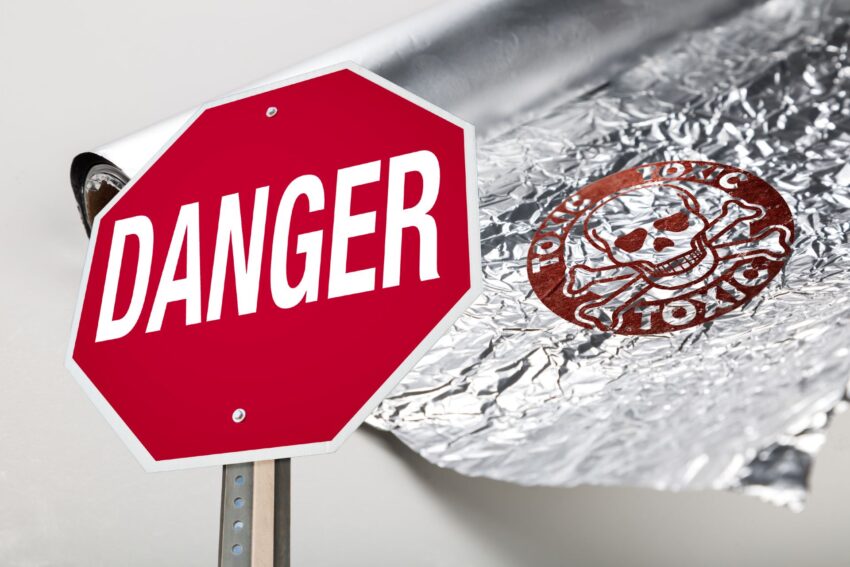Aluminum foil, a kitchen staple for many, has been under scrutiny for its potential health risks, particularly when used in cooking. Despite its convenience, the use of aluminum foil in culinary practices raises significant concerns, especially when considering the body’s interaction with aluminum, a known neurotoxin.
Never bake in foil ❗️
Aluminum is recognized as a strong neurotoxin that can cause nervousness, depression, and memory impairment. Excess aluminum has been found to be linked to changes in the lungs, kidney stone formation, and impaired phosphorus and calcium metabolism.
⠀
When… pic.twitter.com/ugNagRVR5p— Barbara Oneill (@BarbaraOneillAU) July 11, 2024
Aluminum is not just any metal; it’s a neurotoxin with no beneficial role in human physiology. Research has linked aluminum exposure to neurological impairments, including conditions like Alzheimer’s disease. While the direct causation from dietary aluminum to these diseases remains debated, the mere presence of aluminum in our food, especially in potentially higher concentrations due to cooking methods, should be alarming.
When aluminum foil is used in cooking, particularly at high temperatures or with acidic or salty foods, there’s an increased risk of aluminum leaching into the food. This process can significantly elevate the aluminum content in our diet, far beyond what might be considered naturally occurring in foods. The concern isn’t just theoretical; studies have shown measurable increases in aluminum in foods cooked or wrapped in foil, suggesting that even if the body can detoxify small amounts, regular consumption might overwhelm this capacity.
Aluminum foil can release neurotoxins into your dinner, putting you at higher risk of chronic diseases like osteoporosis, Alzheimer's and cancer https://t.co/5zYkFLTaVc
— Organic Live Food (@OrganicLiveFood) February 29, 2024
The implications of regular aluminum ingestion are multifaceted. From potential links to neurodegenerative diseases to impacts on bone health and kidney function, the risks, while not universally accepted in scientific communities, are substantial enough to warrant caution. The body’s ability to handle aluminum might be limited, and with no known biological function, why risk it?
While some dismiss these worries as overblown, the consensus among those advocating for health consciousness leans towards minimizing aluminum exposure. The scientific community, while not unanimous, provides enough evidence to suggest caution rather than complacency.
Please stop cooking with aluminum foil
It has shown that when heated, it leaks into your food
Aluminum is a neurotoxin and has zero known use in the human body
Use unbleached parchment paper instead pic.twitter.com/U9VXJInzdl
— Cooking with Chris (@coookwithchris) June 17, 2024
Given these risks, opting for alternatives like unbleached parchment paper or glass containers for cooking and storage becomes not just a choice but a necessity for health-conscious individuals. These alternatives not only reduce aluminum exposure but also offer other benefits like non-stick properties and even cooking.
The debate over aluminum foil’s safety in cooking might not be settled, but the evidence against its use is compelling. From a health perspective, it’s better to err on the side of caution. Aluminum, as a neurotoxin, does not belong in our bodies in any significant amount. The convenience of aluminum foil pales in comparison to the potential long-term health risks. For those looking to minimize their exposure to unnecessary toxins, eliminating or significantly reducing the use of aluminum foil in cooking is a prudent step.
This critical view on aluminum foil use in cooking underscores the importance of being proactive about what we introduce into our bodies, advocating for a safer, more informed approach to kitchen practices.


